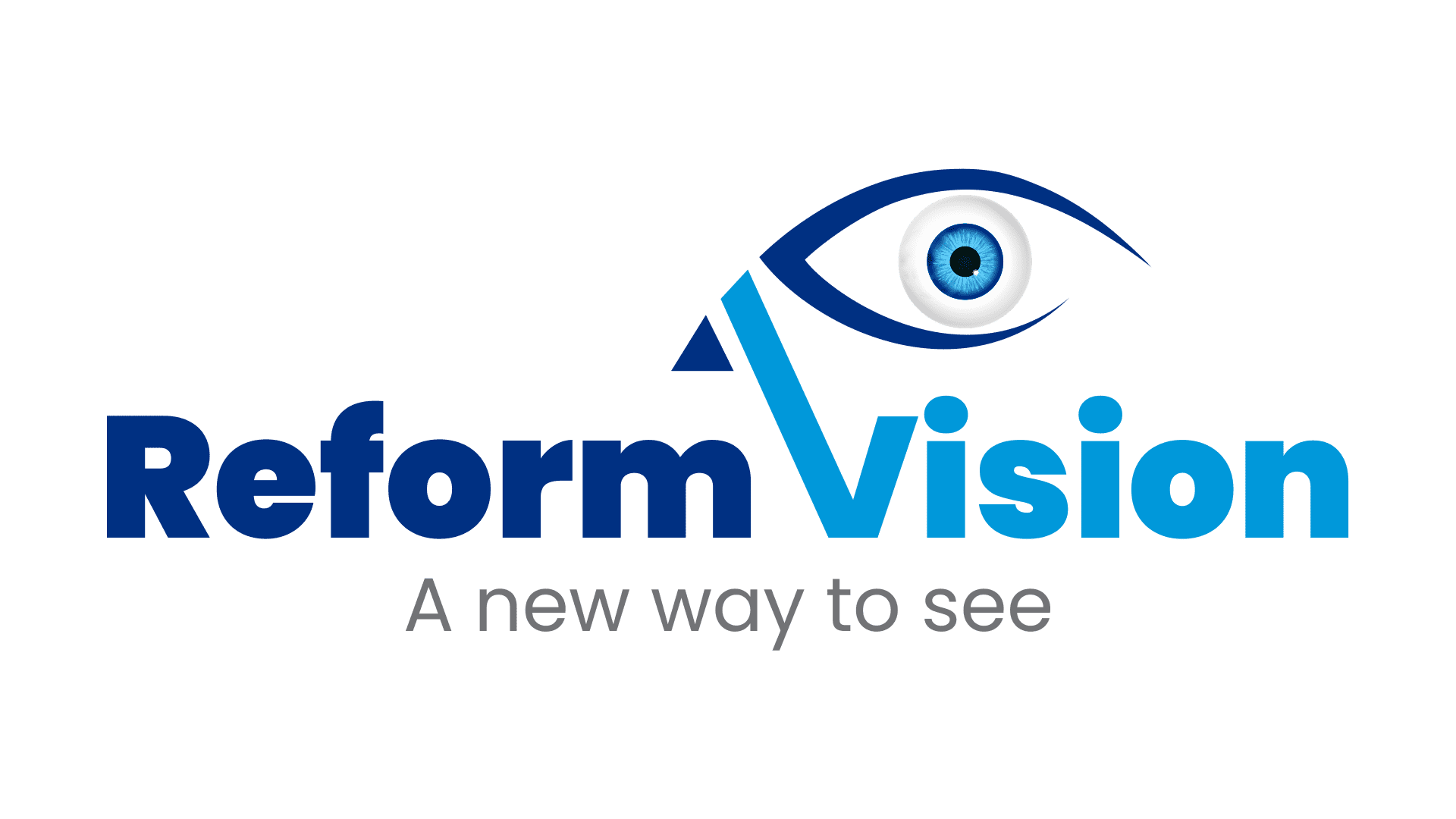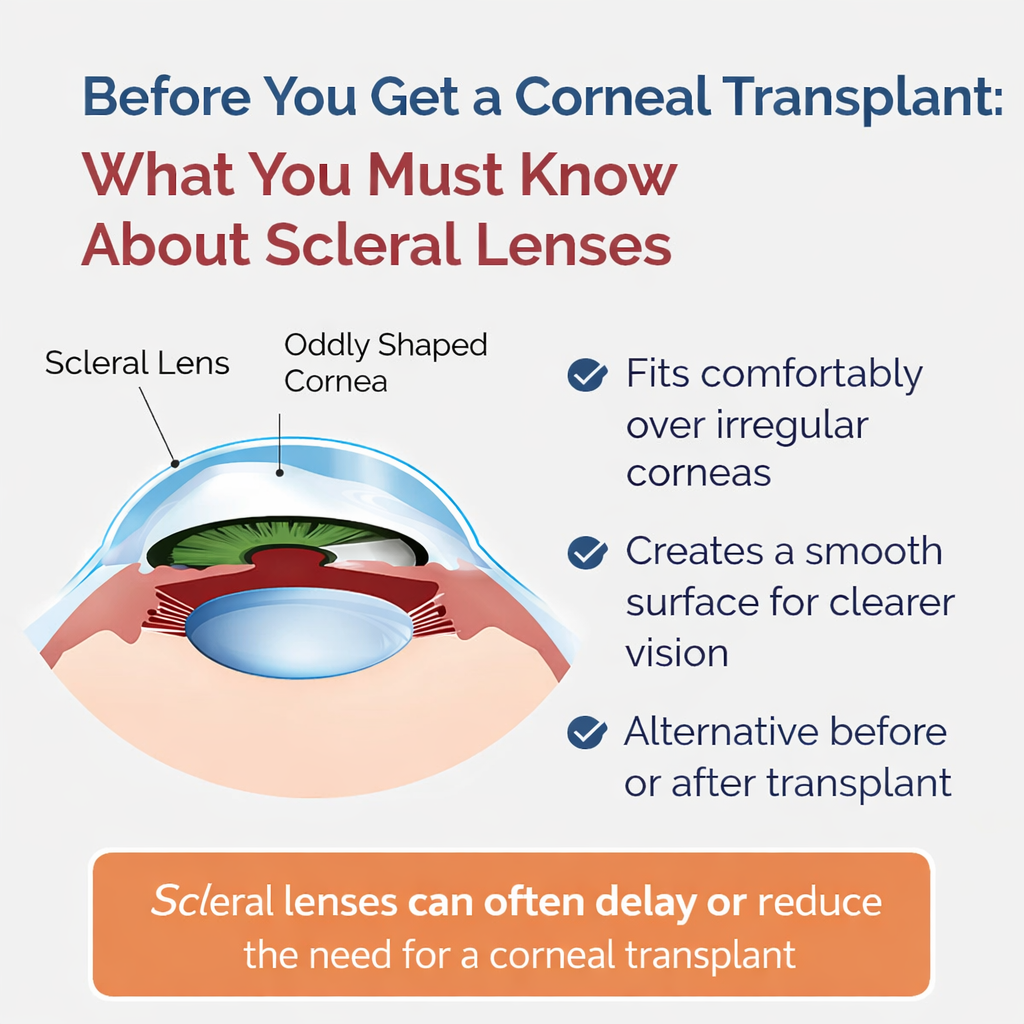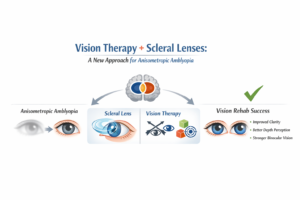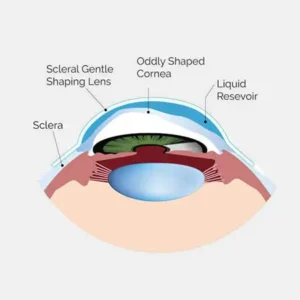A corneal transplant can be scary for a lot of people with keratoconus. Transplant surgery is an option for advanced cases, but it comes with risks, takes a long time to heal, and doesn’t guarantee perfect vision. Scleral lenses are a great non-surgical option that can often delay or even get rid of the need for corneal transplantation.
In this blog post, we’ll talk about how scleral lenses work, why they are better than surgery in many ways, and when you should think about getting them before making a decision about a transplant.
What is a corneal transplant?
Keratoplasty, or corneal transplant, is the process of replacing a damaged cornea with a healthy one from a donor. People with keratoconus often think about this when contact lenses don’t give them good vision or comfort anymore.
There are different kinds of corneal transplants, such as
Penetrating keratoplasty (PK) is a full-thickness transplant.
Deep anterior lamellar keratoplasty (DALK) is a type of surgery that only removes part of the cornea while keeping the endothelium.
Transplants can make the cornea clear again, but they also come with problems:
- Long waits for tissue from donors.
- Chance of rejection and infection.
- Longer time to heal (a few months to a year).
- Possible problems include astigmatism, graft failure, or glaucoma.
Why Should You Look at Scleral Lenses First?
Scleral lenses have changed the way keratoconus is treated by providing a non-surgical, reversible, and very effective option.
What Scleral Lenses Do
Scleral lenses are different from regular contact lenses because they sit on the white part of the eye (sclera) instead of resting on the cornea. This makes a reservoir for fluid that:
- Hides the irregular shape of the cornea
- Fixes vision in a consistent way
- Keeps the cornea moist and safe
Advantages Over Corneal Transplant
- No need for surgery or anesthesia
- A custom fit makes things look better right away.
- Less risk—no risk of infection or graft rejection.
- More comfortable for eyes with dry skin or scars.
- You can stop using it or change it at any time if you need to.
When Are Scleral Lenses the Best Choice?
- Moderate to severe keratoconus that doesn’t get better with glasses or soft lenses.
- Eyes with corneal scars or other problems that make them not good for other lenses.
- People who have dry eye syndrome or ocular surface disease.
- People who want to put off or avoid surgery.
- Patients who need vision correction after CXL or INTACS surgery.
Example of a real-life patient
One of my patients with advanced keratoconus was thinking about getting a corneal transplant because they couldn’t wear contact lenses and their vision was so bad. After putting in scleral lenses, she was able to see 20/30 clearly, which put off surgery for an unknown amount of time. She is now living a better life without the risks of surgery.
What to Expect When You Get Scleral Lenses
- A thorough eye exam that includes mapping the cornea.
- Custom design based on the size and shape of the cornea.
- Try on different trial lenses to find the best fit.
- Teaching patients how to put in, take out, and care for their devices.
- Follow-up visits to check on fit and eye health.
Ending
Corneal transplant is a big choice that comes with a lot of risks and a long recovery time. Many people with keratoconus can now see very well without having surgery, thanks to improvements in scleral lens technology. If you have trouble seeing or your lenses hurt, talk to a scleral lens expert before getting a transplant.
About the Author
Reekham Lal has been an expert in keratoconus and scleral lenses for more than ten years. He works at Reform Vision Hyderabad and helps patients get comfortable, high-quality vision with specialty lenses, which often means they don’t need corneal surgery.




